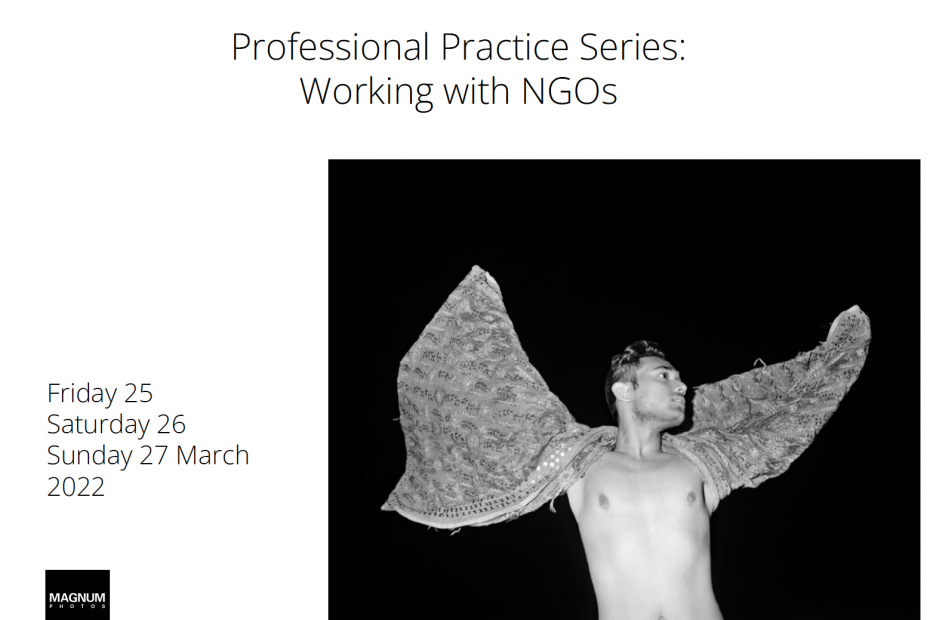Almost a year ago, I was accepted into the mentoring program of the acclaimed Polish photo agency, Sputnik Photos. I was very happy to have my application considered worthy after only a few months back behind the camera after an absence of over a decade. When it became clear that the majority of the program would be conducted in the Polish language, it was agreed I could defer for a year. A year has passed, my photography has leapt on, yet my frankly embarrassing grasp of the Polish language has not. With that in mind, I decided not to apply again this year. Instead, I opted to put the money earmarked to pay for the mentorship to similar but further-afield use.
As January dripped into February, I signed up to both a Street Photography masterclass with Magnum and Richard Kalvar, and another in London with Leica and Bruce Gilden. Kalvar is in a couple of weeks, Gilden in June. With hope and intention of collaborating with NGOs in the future, I enrolled also on “Working with NGOs”, an instalment of Magnum’s online Professional Practice series.
Working with NGOs
In the days leading to the Working with NGOs weekend I found myself a little anxious. Having spent a year building myself back as a photographer, I certainly don’t consider it a hobby or myself an amateur. Nevertheless, I don’t earn even close to 100% of my income with photography so can’t at the same time consider myself a professional. Will I be the least experienced of all the attendees? Would I be out of place? In previous in-person outings I may well have been, but it seems that this online iteration had the coincidental effect of bringing together a diverse list of attendees. We were all photographers, of course, but all with widely different experiences and points of view. That imposter’s syndrome was very quickly shed.
Friday
Friday was a day of lectures and workshops with the group. We were first introduced to Sudhanshu Malhotra from Greenpeace who gave us a brief history of the organisation and some indication of how they work with photographers.
Later, Jess Crombie, a senior lecturer on documentary image making and ethics at London College of Communication (UAL) and a consultant working with NGOs including Save the Children, talked to us on subjects such as representation, ethics, and consent. This was a highlight of the weekend. For someone who considers himself aware of his biases, I discovered, nevertheless, I had a lot to learn.
Finally, in the afternoon, Bruno de Cock of Medicines Sans Frontières talked about the organisation’s historical work with photographers, and the direction such collaboration is now taking. I left Friday with notes-aplenty and a lot to think about both in terms of reassessing how I consider some things, and how I might develop more participatory projects in the future.
The weekend
Both Saturday and Sunday unfolded differently. Portfolio reviews occurred each day. On Saturday I met with Bruno, and on Sunday with Steph Bailey of Save The Children. I found the review with Steph to be fascinating and we had a really insightful conversation that left me feeling inspired. I didn’t have the same vibe with Bruno, but to be fair, I feel that was down to my nervous over-explanation and relentless, loquacious, filling of the space. The poor bloke hardly got himself a word in.
Saturday was punctuated with a 90 minute lecture by Magnum photographer Zied Ben Romdhane; Sunday with the same by current Magnum president, Olivia Arthur. Both were captivating and offered such insight into their projects and process. I particularly enjoyed Arthur recounting stories from her Jeddah Diaries project, particularly how she overcame the hurdle of not showing her subjects’ faces.
Throughout Saturday and Sunday, though as enjoyable and interesting as all this was, I found my favourite part to be the open zoom session through the day as attendees came and went, in and out, of the portfolio review break-out rooms. This was a place we could hang out, chat, and share stories and ideas. Later in the day, there was also the “Magnum Cafe” – a slightly more organised version of the same. In lieu of a lobby or bar we could hang out in, or post-conference drinks, the “Cafe” was a great chance to make friends, acquaintances, and contacts that one might hope will last after the event. As with all such events there were some extroverted souls, and some more quiet, reflective people – and there were several I hope I’ll keep in touch with for some time.
Final Thoughts
All in all, without going into great detail here, this was a great start to my year of attending such events, workshops, masterclasses, etc. Magnum Professional Practice was informative, thought-provoking, encouraging, inspiring, energising, and motivating – it was worth the 3 days to set aside to participate. I look forward to the next in the professional practices series and budget-permitting, I can certainly see myself attending.
Thank you to Magnum, the speakers, and to Sonia Jeunet and Bayryam Bayryamali for facilitating.
